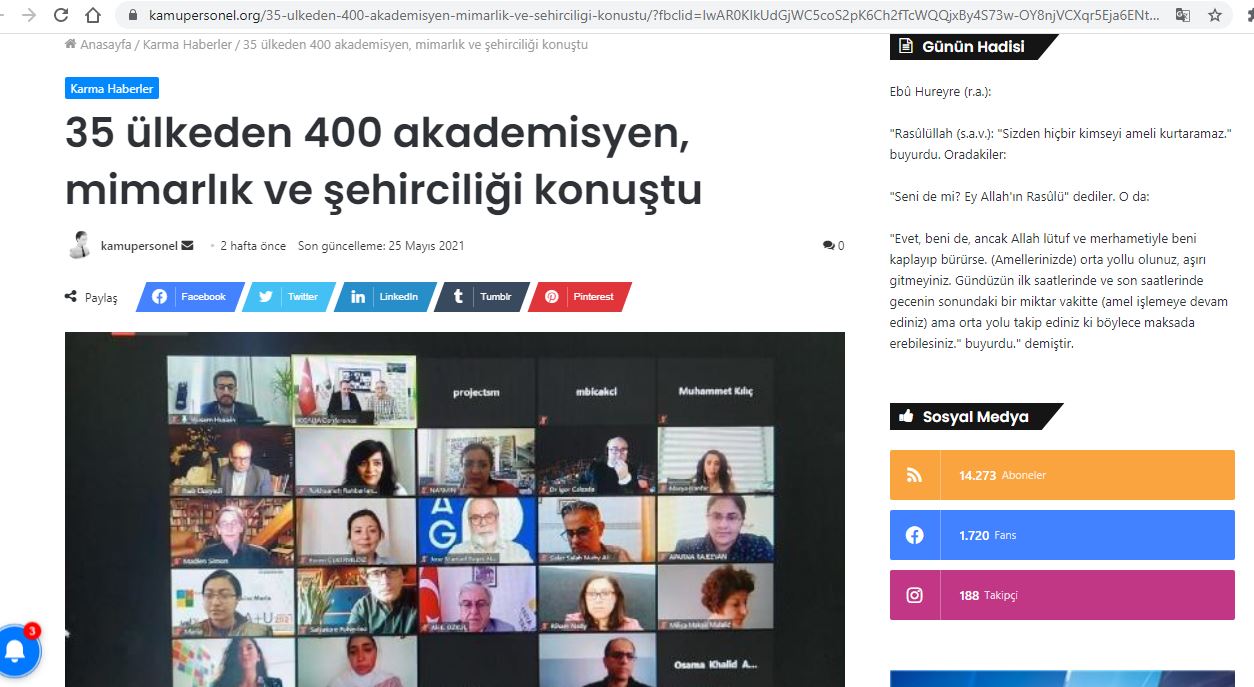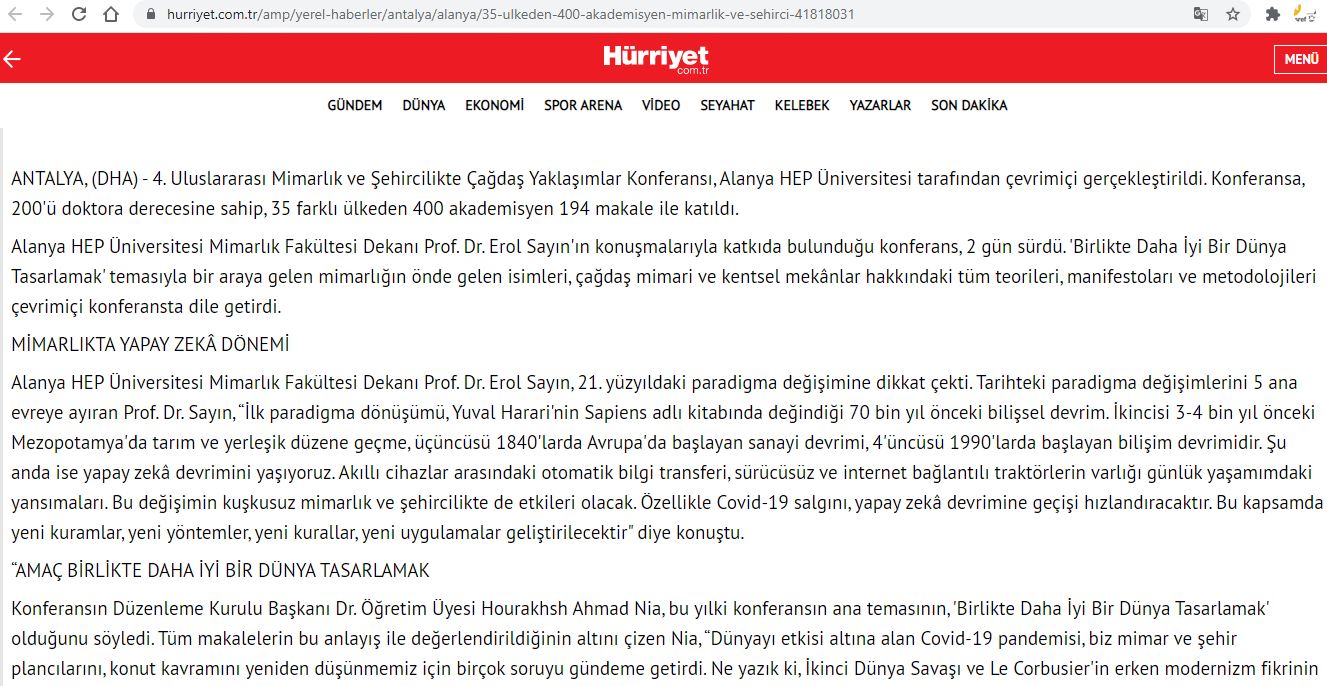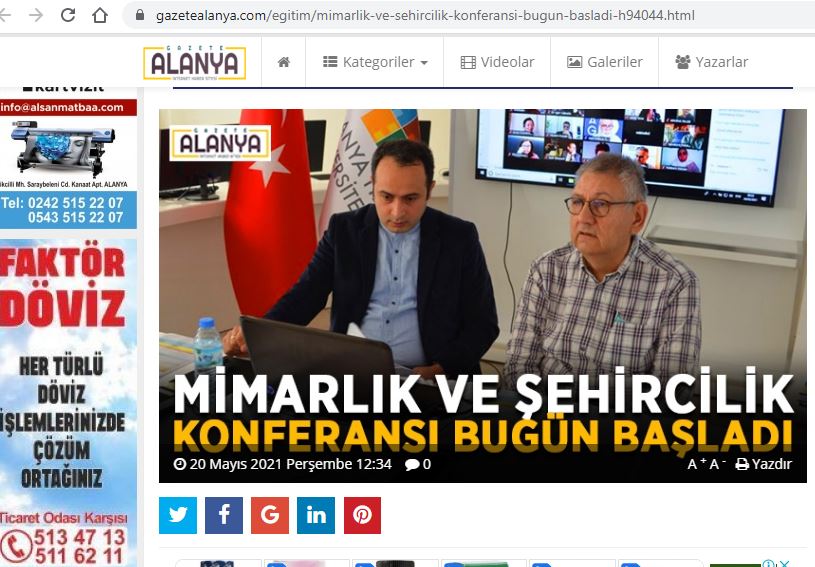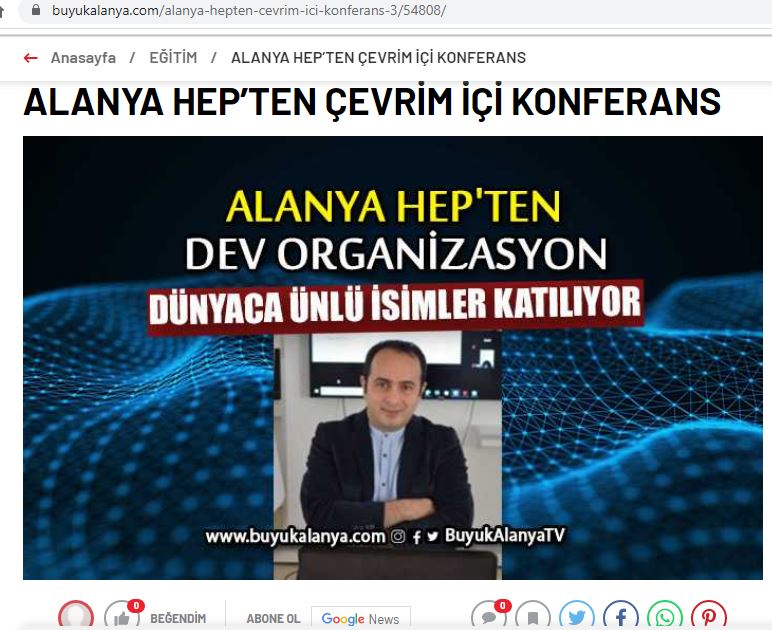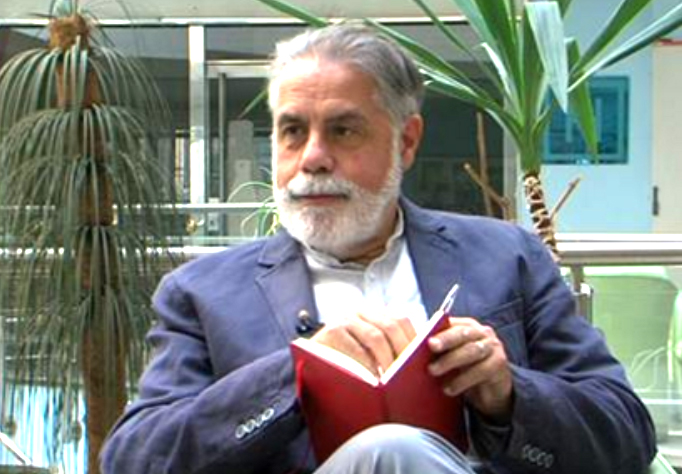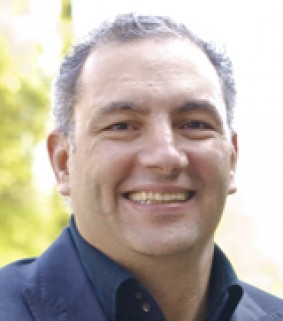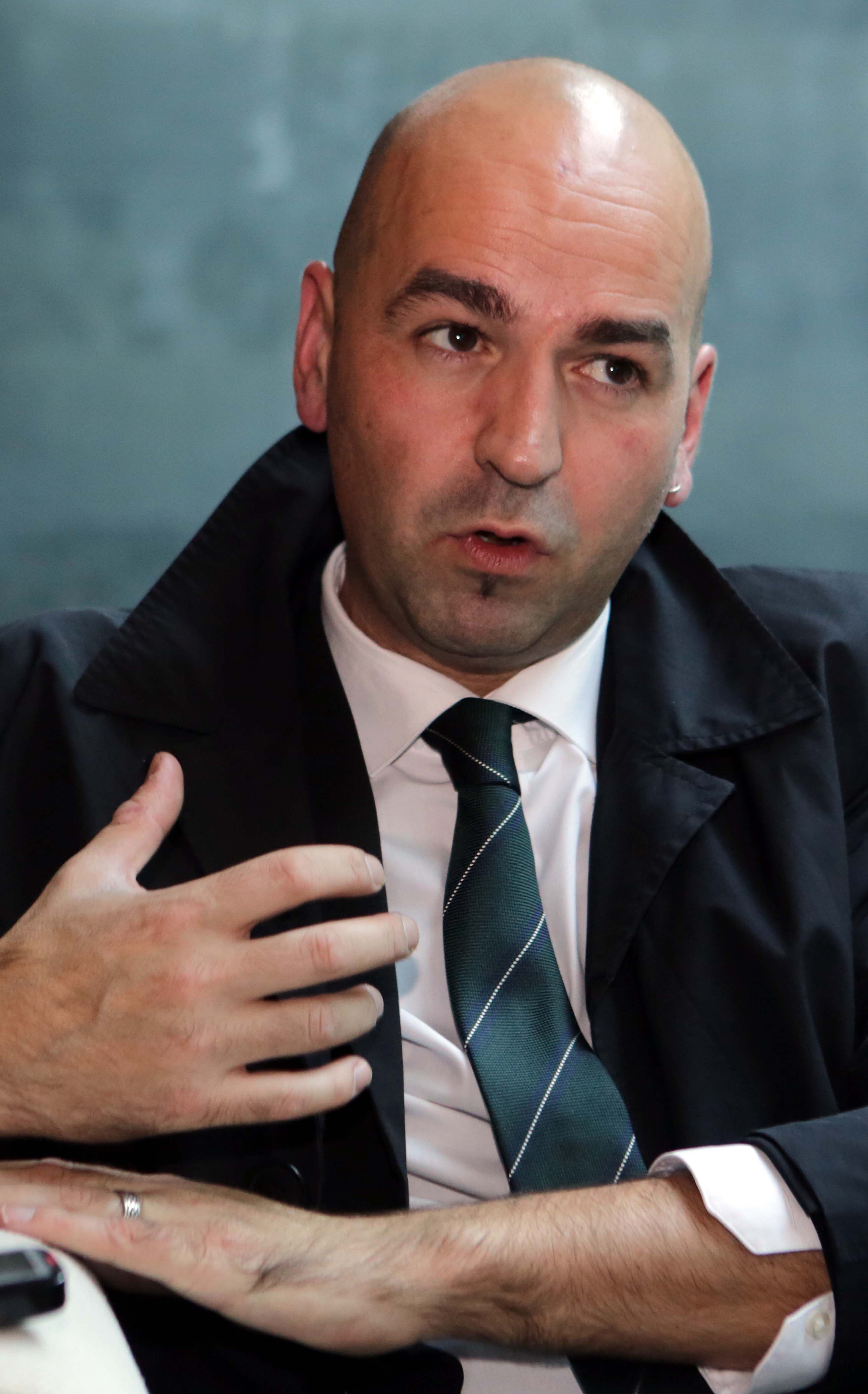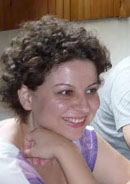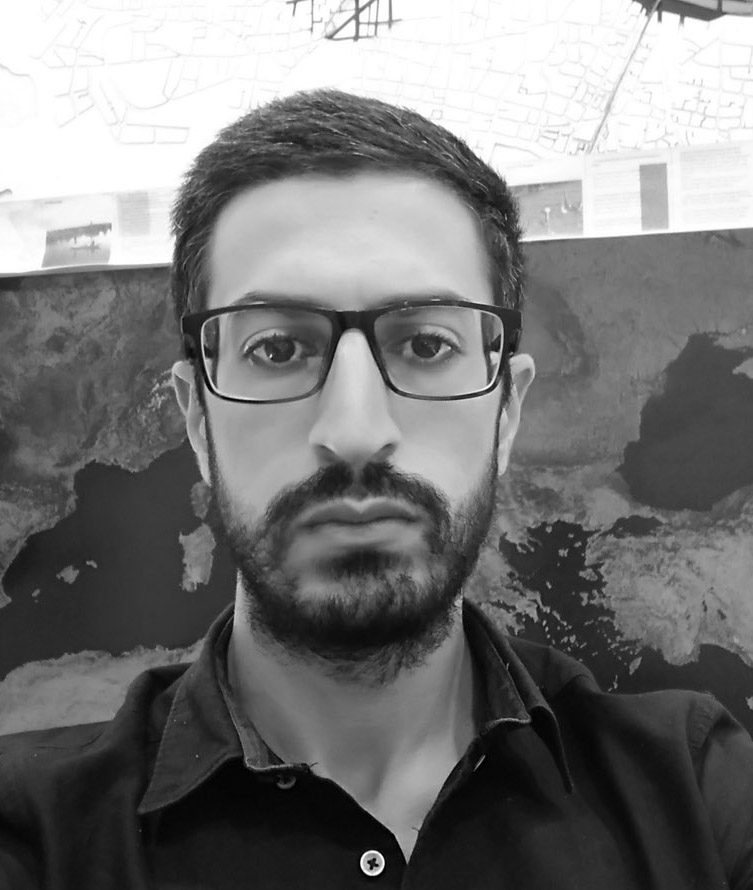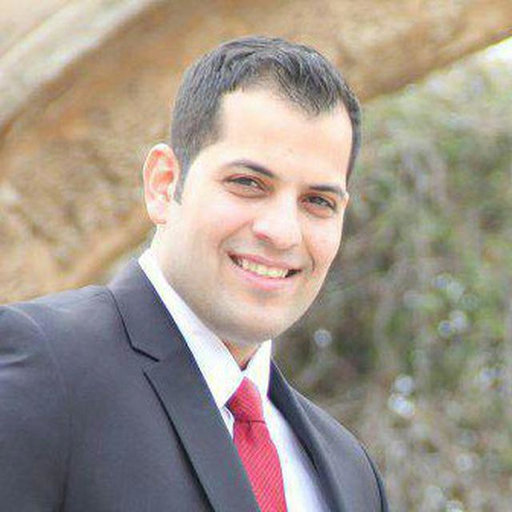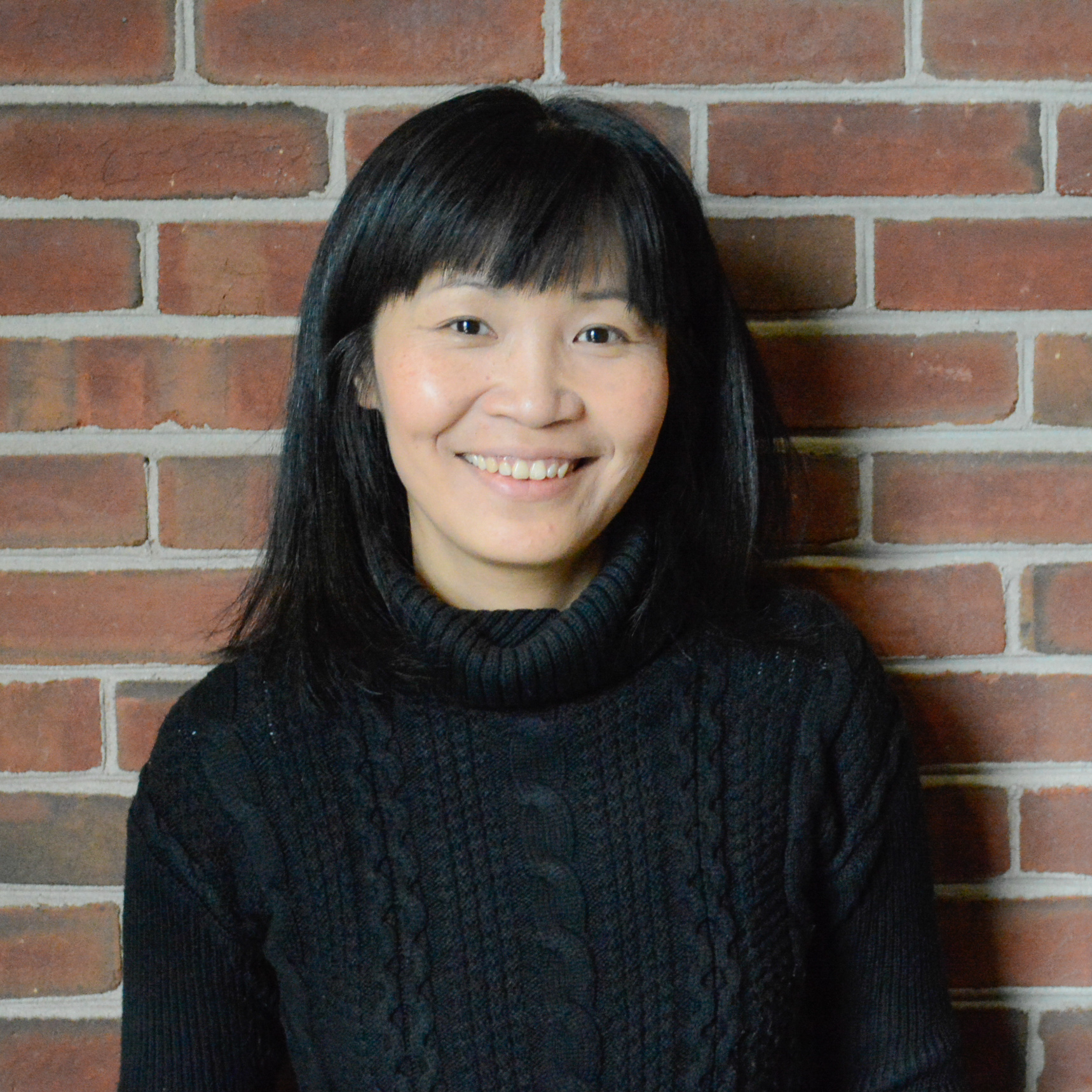Objectives & ScopesOrganizing CommitteeKeynote SpeakersConference BrochurePublication opportunitiesPaper GuidelinesImportant DatesRegistration FeeFee Waiver PolicyVenueAccommodation and Travel Information2018 Gallery 2019 Gallery2020 Gallery2021 Gallery2022 Gallery2023 Gallery2024 Gallery2025 GalleryAbout AlanyaNews DutiesUseful ArticlesFAQsSponsors
2021-gallery
-
Book of the Abstracts for ICCAUA-2021
-
Book of the Full Papers for ICCAUA-2021
-
Individual Full Papers of ICCAUA-2021
-
Program of the conference for ICCAUA-2021
-
Book Chapter: Contemporary Approaches in Urbanism and Heritage Studies
-
List of “Awarded Best Presentations” for ICCAUA-2021 from: here
-
List of the selected papers to publish in the journals and Book Chapters and conference full book proceedings:
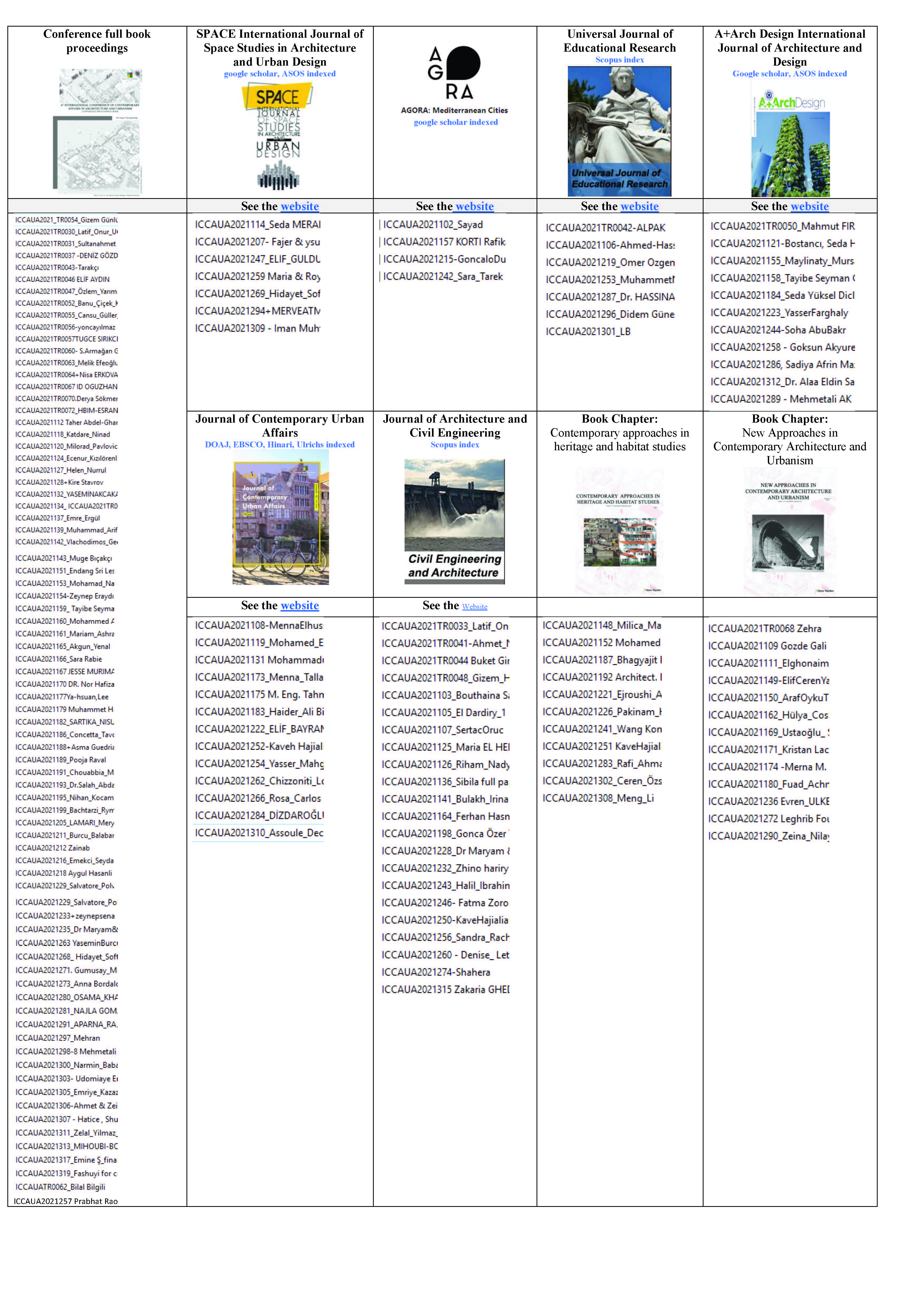
|
|
|
|
|
|
|
|
|
Keynote speakers of ICCAUA2021
Professor Dr. Ihab Elzeyadi, University of Oregon, United States
Professor Ihab Elzeyadi's focus on architecture that provides high indoor environmental quality (IEQ) for its occupants directs his research into high-performance building design, architecture for health and well-being, and design guidelines for indoor environmental quality (IEQ) and multi-comfort dynamic building design. He engages students in hands-on research and design explorations in design studios, seminars, and courses in environmental control systems and high-performance building design. Elzeyadi is the founder and director of the UO High Performance Environments Laboratory (HiPE) and the Façade Integrated Technologies testing facility (FIT). Both are state-of-the-art award-winning facilities that provide research and consulting services for the building industry, research institutions, private, and public entities.
Dr. Elzeyadi has been engaged in the design, construction, and research of high-performance buildings for more than 25 years. He has conducted post-occupancy evaluations and building performance assessments of more than 100 buildings, 55 of them are LEED™ and LBC rated. In addition, Dr. Elzeyadi has conducted grant-supported research on the relationship between people and buildings including impacts of the physical environment on health, productivity, and well-being as they relate to sustainable design strategies in commercial and educational environments. His studies produced evidence-based design guidelines and design-assistance services on various commercial projects with an emphasis on energy and resource effective design. He just completed a number of research projects investigating cost and financial benefits of green and LEED™ educational environments, livable communities’ physical infra-structure, and the Green Classroom Toolbox Project for energy retrofits of existing schools. Professor Elzeyadi recently received the I3 research award (Incubating Interdisciplinary Initiative) for his collaboration with Neuroscience to uncover the complex relationship between lighting type and quality on occupants’ brain functions and stress modulation. He is currently applying this research to the creation of evidence-based design guidelines for occupants’ multi-comfort in commercial buildings, including offices, schools, and hospitals health care settings.
Elzeyadi has advised student teams receiving firsts in the UIA International Student Competition, RIBA Energy Futures, INREB International Competitions, as well as the Luraline International Luminaire competition in recent years. He is the faculty advisor and sponsor for two out of top ten winning entries for the AIA COTE top 10 student design awards for 2014-2015. He has received research commendation awards and best paper awards from multiple organizations including Passive and Low Energy Architecture (PLEA), Ford Foundation, World Academy for Design and Health, the International Facility Management Association (IFMA), King Abdullah City of Science and Technology (KACST), and the Environmental Design Research Association (EDRA). He serves on the editorial board and scientific committees of various journals and conferences including Greenbuild, Design and Health Journal, and the Architectural Research Center Consortium.
Elzeyadi is a registered architect and engineer in Egypt where since 1988 he has maintained a private architectural practice specializing in building rehabilitation and adaptive re-use of historic structures. He was the designer and principal architect for winning entries in competitions for the Abu-Dhabi National Oil Company Administration Building (UAE) and for the rehabilitation and reuse of regional offices of the World Health Organization in Alexandria, Egypt. He is the past-president of the Society of Building Science Educators (SBSE), a past-member to the USGBC Research Advisory Committee, Past-Chair of USGBC, Thought and Leadership in Research working group, and an active member of the Illumination Engineering Society (IES), American Society of Heating Refrigeration and Air Conditioning Engineers (ASHRAE), American Solar Energy Society (ASES), Environmental Design Research Association (EDRA), and Oregon Built Environment and Sustainable Technologies (OR BEST).
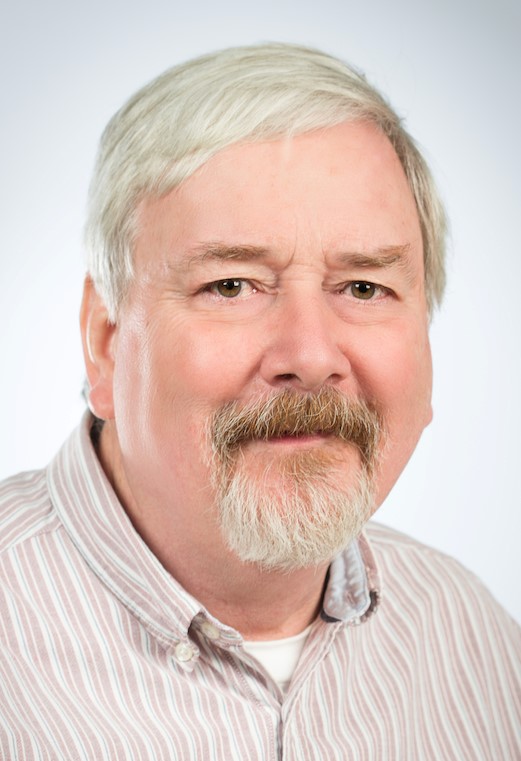
Professor Dr. Ray Hutchison , University of Wisconsin-Green Bay, United States.
Ray Hutchison is Professor of Sociology, faculty advisor for Urban Studies and Director of the Hmong Studies Center at UW-Green Bay. Dr. Hutchison grew up in Nashville, Tennessee and received the BA (Sociology) from Harpur College at the State University of New York-Binghamton and the MA and PhD (Sociology) from the University of Chicago. His areas of research and teaching include urban studies, street gangs, race and ethnicity, and immigration. He is the editor of the SAGE Encyclopedia of Urban Studies, series editor of Research in Urban Sociology (Emerald Press), and editor of a new monograph series in urban sociology for Anthem Press (UK).
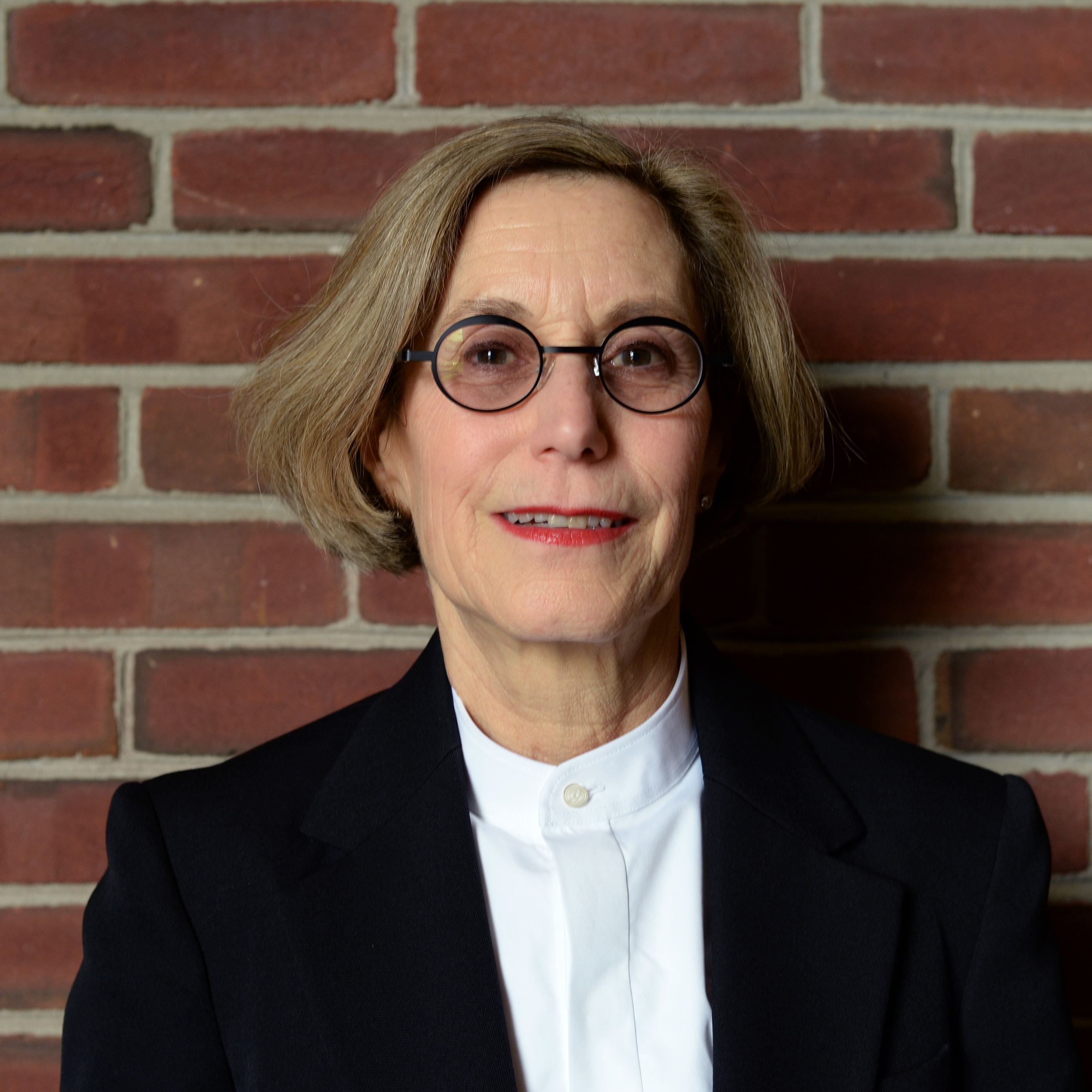
Professor Madlen Simon, University of Maryland, USA
I am Professor and Associate Dean for Academic Affairs & Outreach in the School of Architecture, Planning and Preservation at the University of Maryland. Design thinking is my focus as a researcher and educator. While the scientific method is a way of discovering what is, design thinking is a method for envisioning what ought to be. I put design thinking into practice to envision better futures for people and communities. My scholarship discovers the history and theory of design thinking and the education of designers. As an educator, I teach future architects design thinking as a methodology for engaging with people around the globe and I teach design thinking to students from all disciplines as a methodology for innovation and entrepreneurship. I work with graduate students and seek funding for design research projects investigating questions facing organizations as they plan strategically for their futures. As an academic and professional leader, I use design thinking to engage colleagues in productive change, to advance undergraduate education at the University of Maryland, and to advance architectural education across the nation. I currently teach the graduate Architectural Design Studio: Bridging the Gap, a Global Classrooms Initiative course in collaboration with Al-Nahrain University in Baghdad. Our international, inter-university collaboration includes research on virtual global education plus funded curriculum development collaboration.
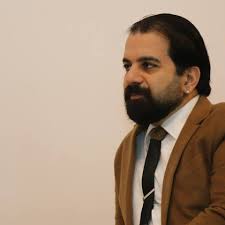
Professor Dr. Hossein Sadri, Girne American University CYPRUS and Lecturer of Architecture and Contemporary Challenges at Coventry University, UK.
Dr. Hossein Sadri is an academic, designer, activist, and writer. In addition to his faculty position at Coventry University UK, he holds a full professor position at Girne American University where he worked as the head of architecture and the dean of the Faculty of Architecture, Design & Fine Arts between 2011-2016. He held academic teaching and research positions at Islamic Azad University of Tabriz in IRAN, National Academy of Sciences in AZERBAIJAN, The American University in Canterbury - UK, and The City University of New York in the USA. He studied undergraduate and graduate courses in the departments of Architecture, Philosophy, and Environmental Sciences and Policy at the Islamic Azad University of Tabriz in IRAN, Gazi University, Hacettepe University, and Yildiz Technical University in TURKEY, and Central European University in HUNGARY.
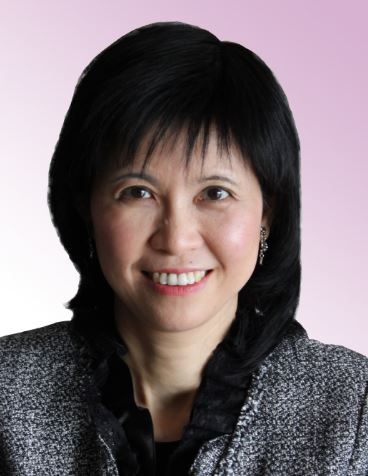
Professor Dr. Mee Kam NG, The Chinese University of Hong Kong, China
Urban governance and planning, sustainable development, world city, community planning, urban regeneration
Professor Mee Kam Ng is currently the director of the Urban Studies programme at the Chinese University of Hong Kong. She is a member of the Royal Town Planning Institute (RTPI), a fellow of the Hong Kong Institute of Planners (HKIP) and a member of the Hong Kong Institute of Urban Design.
Mathematical Model Applied to Green Building Concept for Sustainable Cities under Climate Change
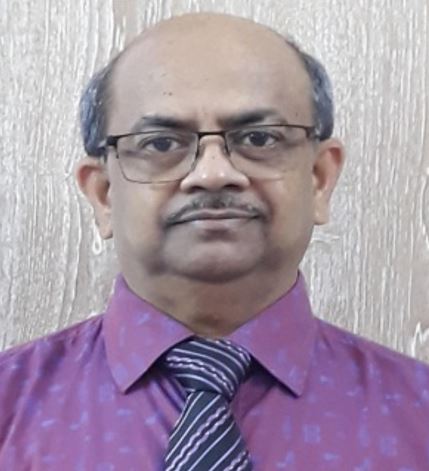
Professor. Dr. Md. Haider Ali Biswas, Khulna University, Bangladesh
Dr. Md. Haider Ali Biswas is currently affiliated with Khulna University, Bangladesh as a Professor of Mathematics under Science Engineering and Technology School and he served as the Head of Mathematics Discipline from 2015 to 2018. Prof. Biswas obtained his B Sc (Honors) in Mathematics and M Sc in Applied Mathematics in the year 1993 and 1994 respectively from the University of Chittagong, Bangladesh, M Phil in Mathematics in the year 2008 from the University of Rajshahi, Bangladesh and PhD in Electrical and Computer Engineering from the University of Porto, Portugal in 2013. He has more than 20 years teaching and research experience in the graduate and post-graduate levels at different public universities in Bangladesh. He published Three Books, Five Book Chapters and more than 150 research papers in the peer reviewed journals and international conferences. Prof. Biswas has worked at several R & D projects in home and abroad as PI and/or Researcher, particularly he is conducting different research projects funded by the Ministry of Science and Technology, Bangladesh, University Grants Commission of Bangladesh and The World Academy of Science (TWAS), Trieste, Italy. His present research interests include Optimal Control with Constraints, Nonsmooth Analysis, ODEs and Dynamical Systems, Mathematical Modeling, Mathematical Ecology, Environmental modeling and Climate change, Mathematical Biology and Biomedicine, Epidemiology of Infectious Diseases. Since the last ten years, Prof. Biswas has been working on the applications of mathematical models for designing and implementing those to real life problems, specially for the sustainable/optimal management under the changing environment due to global warming. He is the life/general members of several professional societies and/or research organizations like Bangladesh Mathematical Society (BMS), Asiatic Society of Bangladesh (ASB), Institute of Mathematics and its Applications (IMA), UK, European Mathematical Society (EMS) and Society for Mathematical Biology (SMB). Dr. Biswas is the founder member of Mathematical Forum Khulna and served as the General Secretary of the Forum in 2013-2015. Dr. Biswas organized several national and international seminars/workshops/conferences in home and abroad and he has been working as Editor/Member of editorial boards of several international peer-reviewed journals. Professor Biswas contributed as Keynote/Invited/Plenary/Panel speaker at several international conferences/seminars/workshops in home and abroad. Professor Biswas has been nominated as the Member of the Council of Asian Science Editors (CASE) for 2017-2020 and the Associate Member of the Organization for Women in Science for the Developing World (OWSD) since 2017. Recently, Professor Biswas has been elected as a Member of Executive Committee of Bangladesh Mathematical Society (BMS) for the year 2020-2021, and also nominated as the Associate Editor of the international journal GANIT- Journal of Bangladesh Mathematical Society (BMS) for the year 2020-2021. Dr. Biswas has been nominated as a Member of Executive Committee of the IEOM Society, Bangladesh Chapter and also serving as the Treasurer of the IEOM Society, Bangladesh Chapter. He is also serving as the Faculty Advisor of the IEOM Society Khulna University Chapter. Professor Biswas is presently serving as the President of Bangladesh Society for Mathematical Biology (BSMB) for the year 2020-2022.
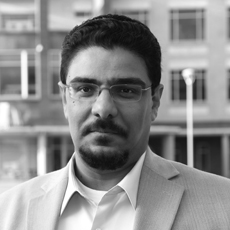
Associate Professor Dr. Hazem Rashed-Ali, The University of Texas at San Antonio, United States
Professor Rashed-Ali is an Associate Professor in the Department of Architecture, and the Associate Dean of Research and Graduate Studies in the College of Architecture, Construction, and Planning, UTSA. He joined UTSA in 2006 where he teaches design studios as well as building technology, environmental systems, and building performance simulation and evaluation courses at both the undergraduate and graduate levels. He has supervised thesis students in both the Architecture and Urban Planning programs. In 2014, Professor Rashed-Ali was the recipient of the University of Texas System Regents’ Outstanding Teaching Award, among the largest in the nation for rewarding outstanding faculty performance.
Professor Rashed-Ali’s current research focuses on sustainable architecture and urbanism with an emphasis on minimizing the negative environmental impacts of the built environment through the design of high-performance, energy efficient, and carbon neutral buildings and communities. He is the recipient of several research grants both individually and as part of interdisciplinary collaborative teams representing more than half a million dollars of research funding. Examples of his projects include conducting a neighborhood sustainability assessment for the City of San Antonio, developing an augmented reality system for the teaching of passive energy and energy efficiency principles, and investigating the energy efficiency potential of historic homes in humid climates. Professor Rashed-Ali’s work was published in prominent national and international conferences and journals. Professor Rashed-Ali is Vice President of the Architectural Research Centers Consortium, an international association of architectural research centers committed to the expansion of research culture in architecture and related disciplines.
Professor Rashed-Ali holds a PhD in Architecture from Texas A&M University. He also has a M.S. in Architecture from Oxford Brookes University in the UK focusing on Energy Efficient Buildings, and a B.S. in Architecture from Ain Shams University in Egypt. He is a registered architect in Egypt.
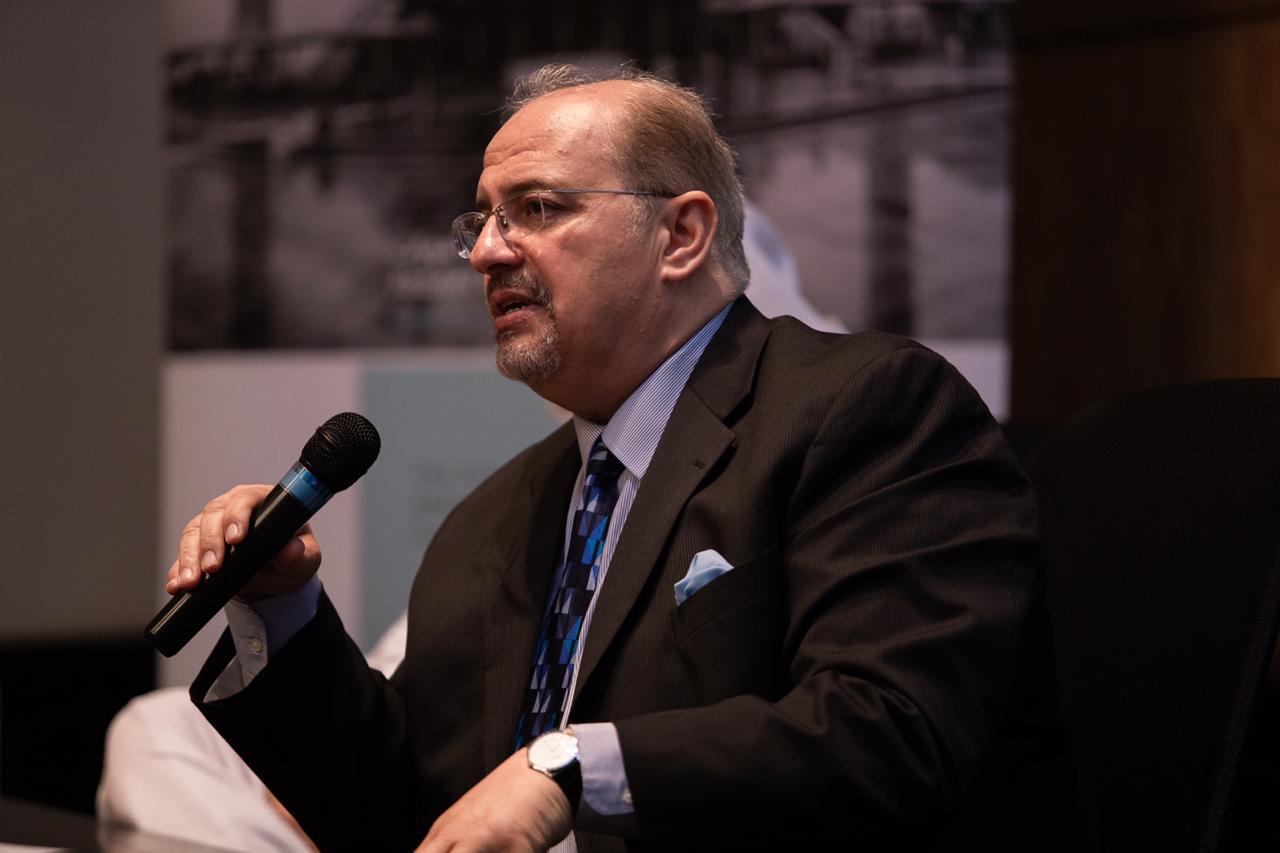
Prof. Dr. Islam El Ghonaimy, Department Of Architecture and interior design, College of Engineering, University of Bahrain, Bahrain
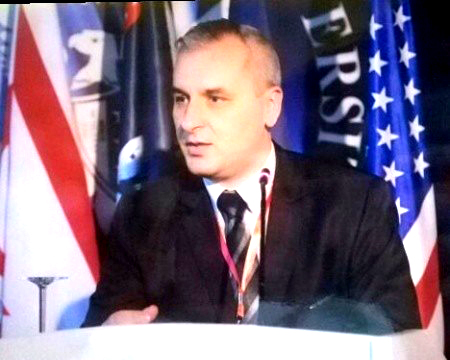
Assist. Prof. Dr. Lazar Stosic, President of The Association for the Development of Science, Engineering and Education, Serbia
Editor in chief: International Journal of Cognitive Research in Science, Engineering and Education (IJCRSEE)
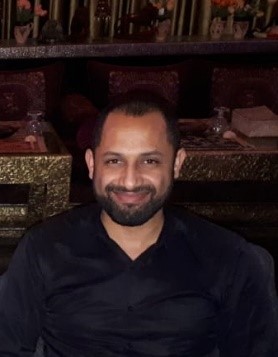
Dr. Anouar Abdelhakim BOUDHIR, Abdelmalek Essaâdi University, Morocco
Boudhir is currently an associate professor at the Faculty of Sciences and Technique of Tangier. Actually, he is the president of the Mediterranean Association of Sciences and Technologies. He is an adviser at the Moroccan union against dropping out of school. He received the HDR degree from Abdelmalek Essaadi University; he is the co-author of several papers published in IEEExplorer, ACM, and in high indexed journals and conference. He co-edited a several books published on Springer series and he is a co-founder of a series of international conferences(Smart health17, SCIS’16, SCA18, SCA19, SCA20,NISS18, NISS19, NISS20, DATA21) till 2016, His supervise several thesis about Artificial Intelligence, Security, E-healthcare. His key research relates to Ah doc networks, VANETS, WSN, IoT, Big Data, Computer Healthcare Applications, Smart City Applications and Security Applications.
Comments from the authors after the ICCAUA2021 conference:
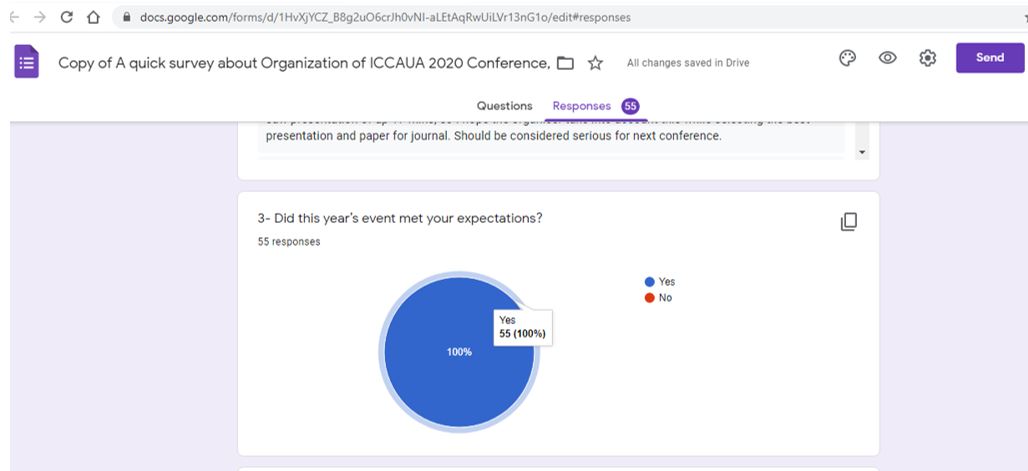
-I thought ICCAUA is well organized and the event makes a good impression for me since there is so many authors submit their research paper on ICCAUA 2021
-It's great.
-Great organisation
-The conference was so much better.
-It was improved better than the previous three years, well done.
-This organization was very successful in terms of sharing scientific knowledge.
-very nice and adequate organization
-It was just an amazing organisation!
-nice conference
-It was amazing, regarding the critical situation (covid-19) in my point of view the organization was great and completely valuable.
-I found the ICCAUA2021 conference committee did a very good job. I know that It is very hard to -organize such a huge number of participants, especially on the online platform. I want to congratulate all the members associated to make the event successfully. Hope to meet you all next year (I wish in person with new research).
-Good organization
-Excellent organization. Great effort.
-It is a great event! I encourage continuing the ICCUA conference in the future and maintain great and well-organized preparations.
-It was the first time that I participated in the conference. Everything was clear and I was able to get all the answers I wanted. I thank the conference organizers for their speed in communicating about any unclear point.
-Thank you for this conference, and I hope we meet next year."
-It was a very successful 2 days. congratulations. Thanks to the efforts of all authors.
-very friendly and cooperative
-more than amazing opportunity in these days situations, I guess it should continue maybe after the pandemic
-Given the large scope of the conference, the organisation was very well managed.
-It was a really good event, the communication with the organization staff was great. The only problem was some technical issues with the audio of some videos, but they were soon re-established
-It was well designed and brought a new perspective to me about some subjects related to urban planning and architecture. Also, keynote speakers were so precious.
-Very good organisation
-There is no problem. I think it is a useful conference.
-It was very good
-all things that amazing and ı have to learn many ınformation about architectural vision
-the conference was very well organised thanks to the organising committee it was great
-The best one
-Well organized
-Wonderful! Better than the last edition.
-the overall organization of ICCAUA2021 is very great. The conference covered the technical problems that face some participants in very professional performance. The organizing supports the speakers in a qualified way as well.
-It was a good organization and satisfaction was provided to a great extent as a lot of effort was spent. However, maybe a 7-minute video and 3-minute views of the speaker can be taken every year to be a little more interactive.
-Professional and helpful organisers
-It seems that your event was well organized.
-In our session, there were some technical problems. It could be rasyonel for the chair to take Some help from conference team. The conference team also there but on Friday the chair had technical problems.
-Overall organization was very organized and fast for publications and all the paperwork.
-I believe it was a good experience regarding urban issues
-I found the conference well quality. the sessions were well grouped with papers related. the online recorded presentation was a good technique but could be allowed more than 10 min. maybe 15 min. would be better.
-It was a well-prepared organization, all sessions were on time and well managed.
-Katılım kolay ve verimliydi. Yeterince süre tanındı ve diğer paylaşımlar hakkında da bilgi sahibi olundu. Organizasyon genel olarak başarılıydı, emeği geçenlere teşekkürler.
-Fantastic! Kudos to Prof Jose and Nia especially.
-Congress organization was very successful. Dr. Hourakhsh A. Nia, Dr. Roksana, Dr Seda were very friendly and kindly. The papers were diverse and valuable. I am happy to attend the congress. Thank you to the whole organization team.
-Everything went great! Thank you very much for the opportunity to participate in the conference!
-It was a great arrangement and the scope Can be better.
-Professional and helpful organisers
-The organizers do not stop to surprise us every time.
-Every year we say that this conference is one of the best-organized events and best quality, but the next year the organizers really surprise us with their capacities of constantly improving the content and scientific level. I enjoyed every moment of this event with all authors and committee members, and new connections are always developed. great effort and great spirits, wonderful environment and excellent program. I will always be the first to support this event, and looking forward to the coming conference 2022.
-Very proud that I was part of this, thanks to the chairpersons!
-Great success, congratulations and all the best!!
-Thanks for everything.."
-The organization of the conference was very good. We got a quick response to the e-mails. The instructions videos were very self-explanatory. We completed all the stages without any problems. You have also created a very nice information sharing and information acquisition platform, thank you very much.
-It was really good organized
-Best organization and always updated topics
-Very good
-Professional organization
-We were told to present our paper in 10 mins which was a very short time, however during the conference, I saw the presentation of up to 17 mins, so I hope the organiser take into account this while selecting the best presentation and paper for the journal. Should be considered serious for the next conference.
-It’s a nice and good organization”
-Well organized
Follow us on:

This conference is licensed under a Creative Commons Attribution 4.0 International (CC BY)











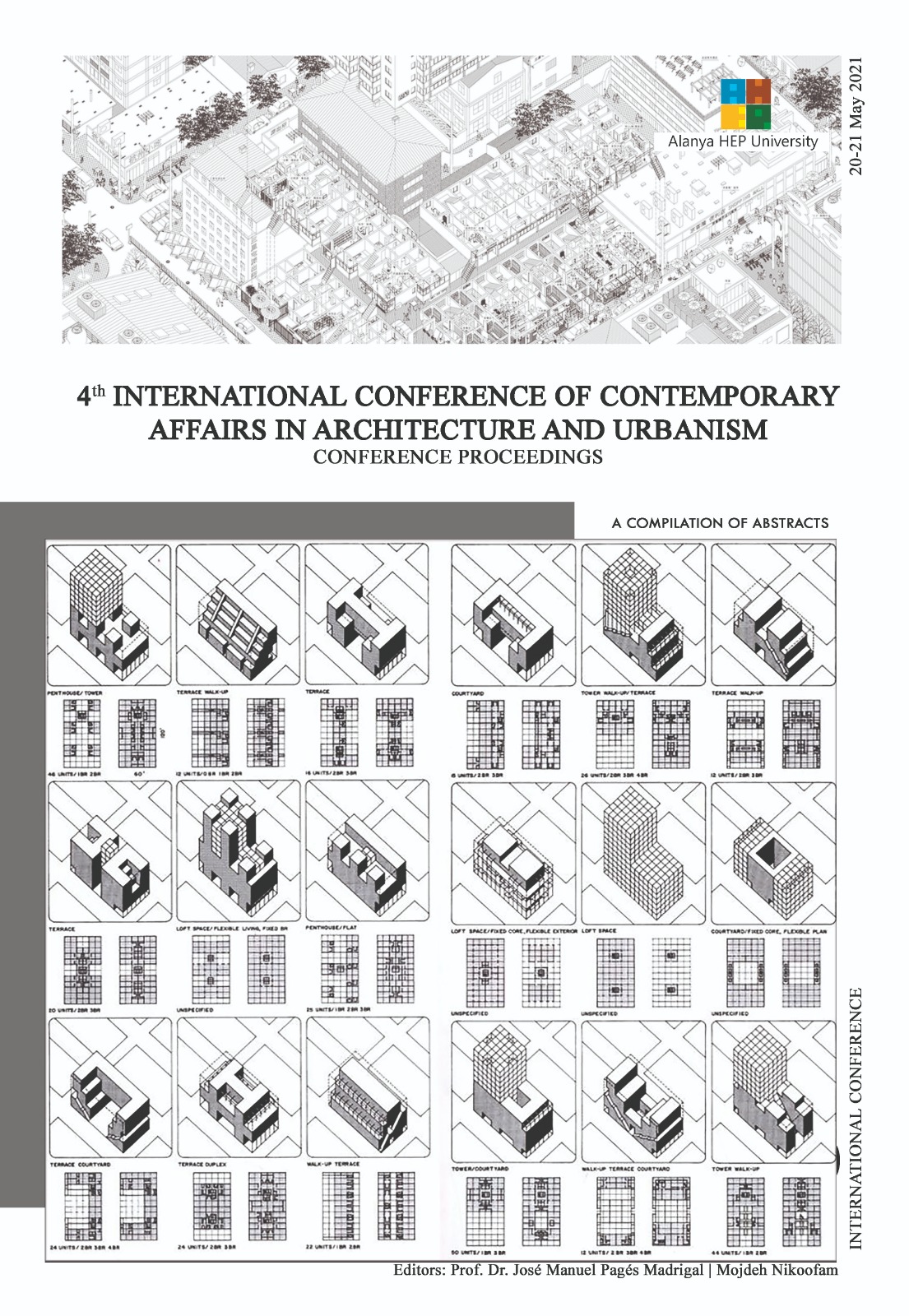
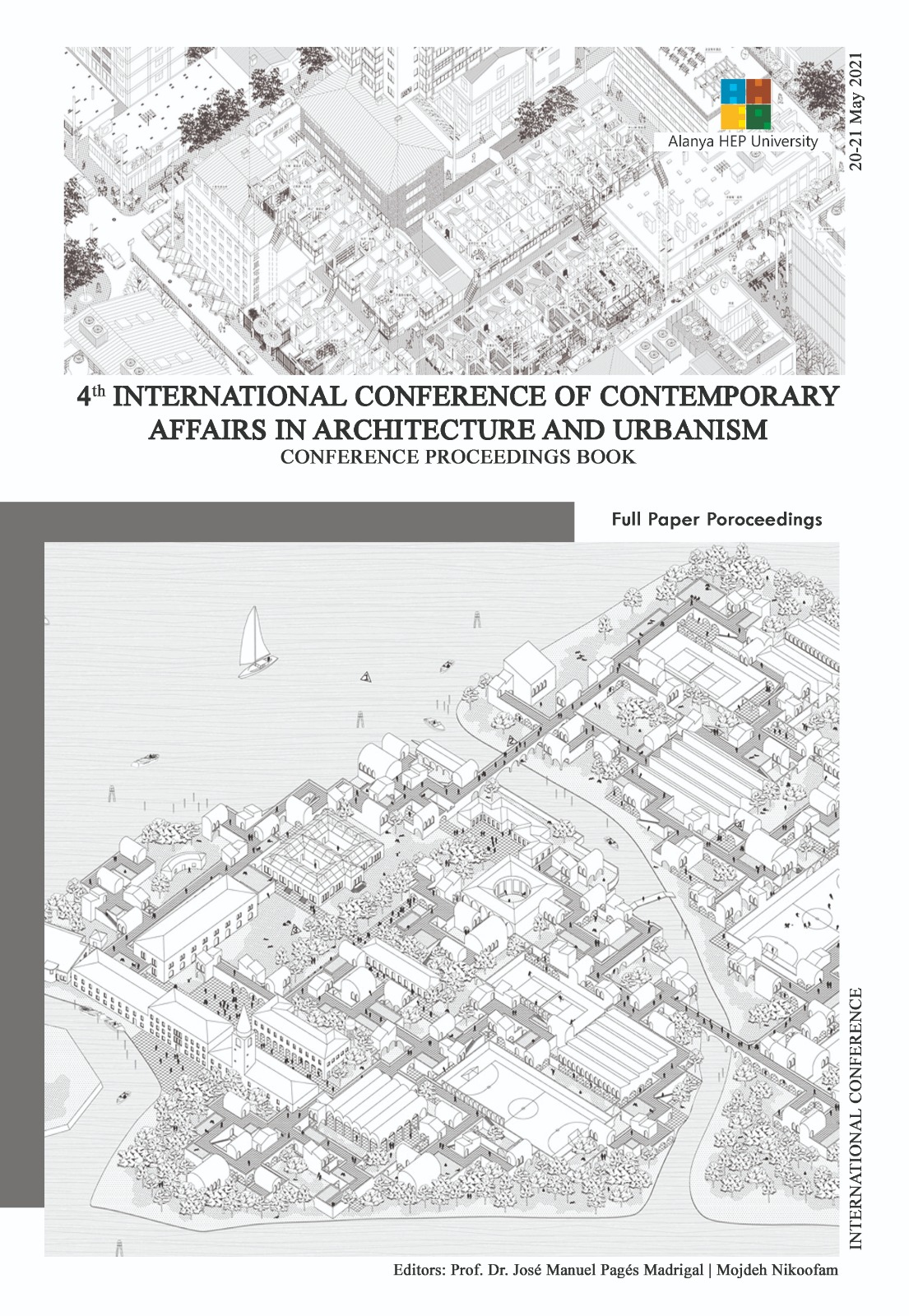
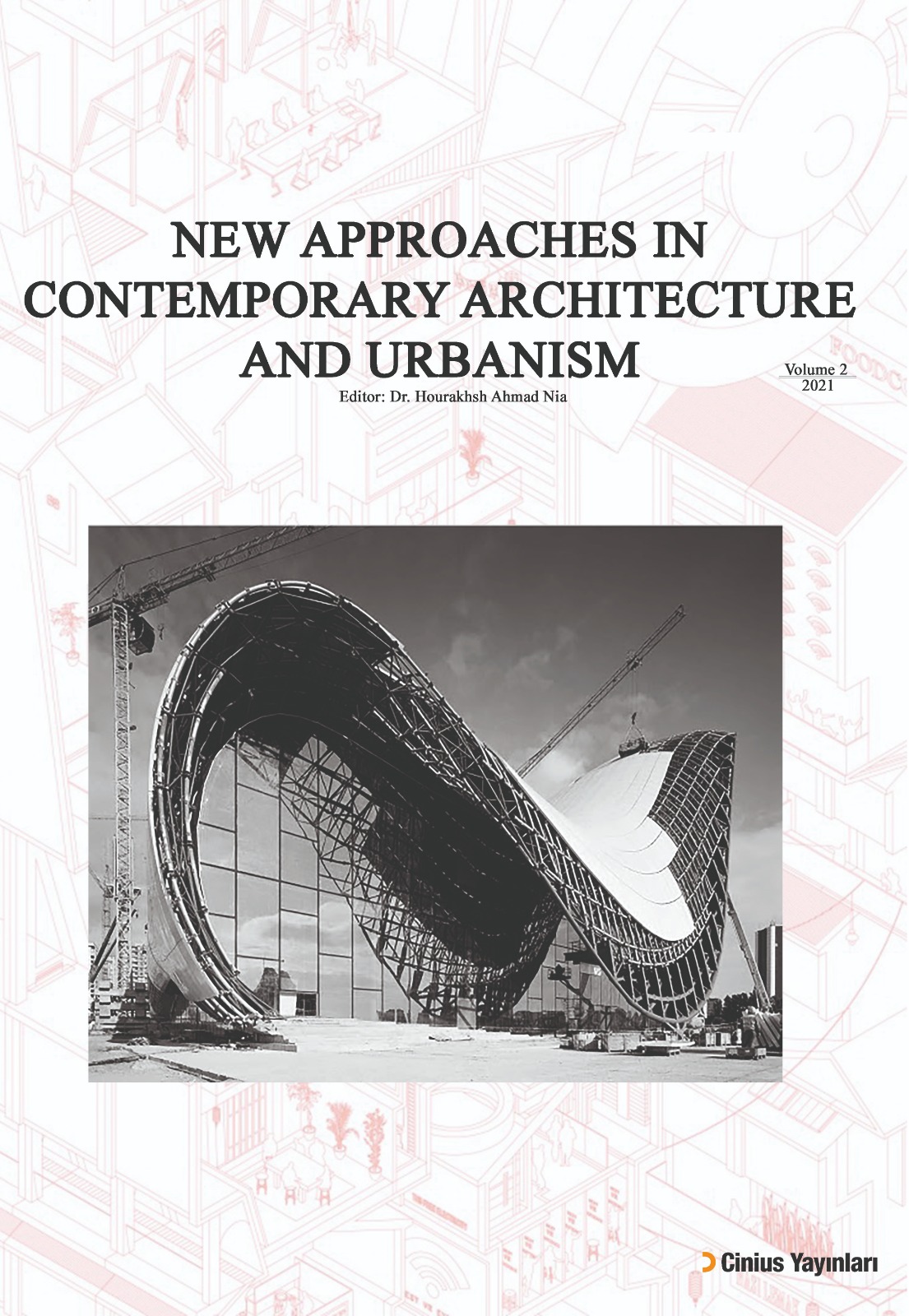
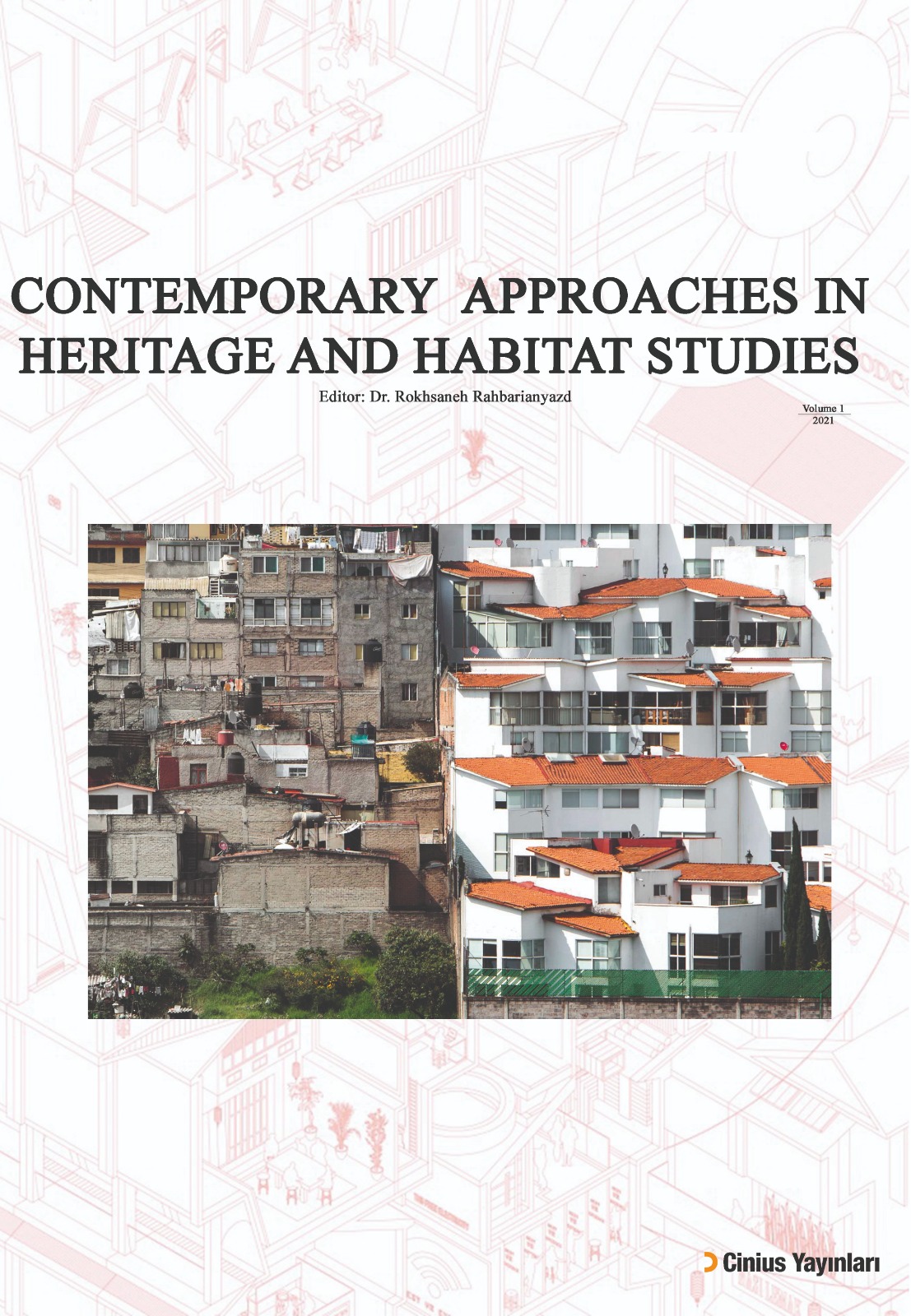
.png)

.png)
.png)
.png)
.png)
